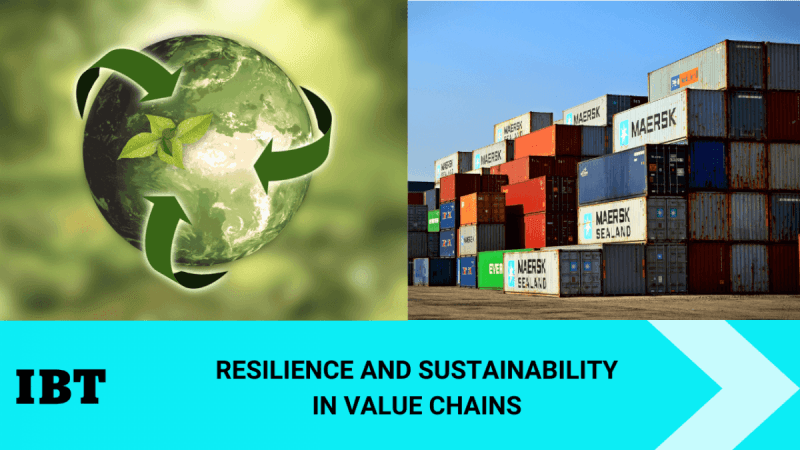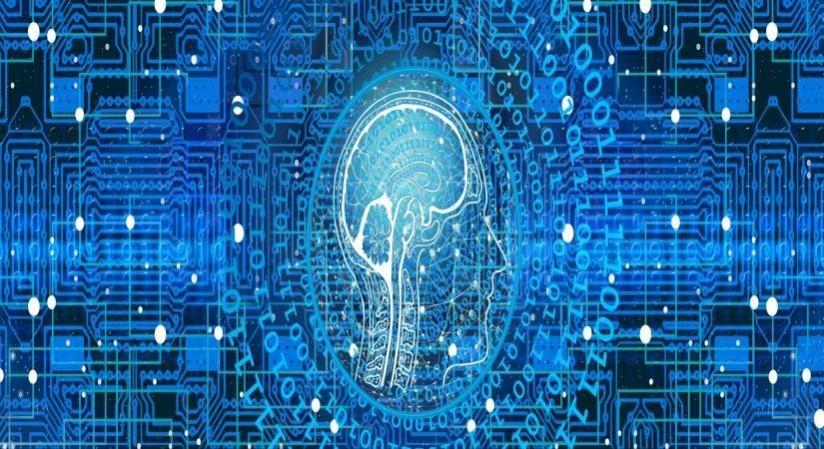The B20 Summit is scheduled to discuss how will G20 Nations ensure that trade and integration into global value chains enable inclusive growth for all countries at B20 India from 25 to 27 2023. I take a look at the subject from a preparatory perspective. In the face of mounting global challenges, resilience emerges as a defining quality for individuals, societies, and organizations alike. In this new millennium, the frequency and severity of disruptions have escalated, impacting not only economies and the environment but also the very fabric of human existence.
While disruptions have been part of human history, their overlapping consequences and uncertain long-term effects call for a fresh perspective on managing them. Institutions, once stalwart in creating stability against extreme events, find themselves grappling with the complexities of a world marked by multiple, diverse disruptions.
As we stand at the intersection of humanitarian tragedies, economic turbulence, and environmental crises, the urgency of adopting a resilient stance has never been greater.
The dire situation in Ukraine, resulting from Russia's invasion, has triggered a far-reaching refugee crisis, amplifying the plight of tens of millions of displaced people worldwide. Moreover, the relentless toll of the COVID-19 pandemic continues to devastate communities, claiming lives at an alarming rate even after years of its onset.
Compounding these challenges is the looming climate crisis, demanding a global shift towards a low-carbon economy. The ramifications of this transition are immense, with potential to cause historic disruptions in human displacement and economic landscapes.
In this evolving reality of complex interplay between disruptions, institutions find themselves grappling with the inadequacy of traditional risk management practices.

As a result, leaders from both the public and private sectors are engaging in critical discussions on resilience. Resilience is not merely about recovering quickly from adverse events; it necessitates the ability to withstand shocks, anticipate future challenges, and continuously adapt and accelerate into new realities.
This article delves into the concept of resilience, transcending the conventional understanding of bouncing back from disruptions. We explore how organizations can foster resilience to remain alert to emerging threats, fortify their foundations, and proactively embrace change. In a world where uncertainties prevail, cultivating resilience becomes the linchpin to thriving amidst the storm of challenges, offering a beacon of hope for a more resilient and sustainable future.
In the face of a rapidly changing world, businesses are confronted with various challenges that require them to reevaluate their operations and strategies continually. Embracing resilience and sustainability in value chains has become imperative for organizations to not only survive but also thrive in the long term. Resilience ensures that businesses can adapt and recover swiftly from disruptions, while sustainability guarantees a responsible and ethical approach to economic, social, and environmental concerns.
1. Understanding the Need for Resilience and Sustainability in Value Chains:
The global business landscape is increasingly susceptible to disruptions caused by geopolitical events, climate change, pandemics, and technological advancements. The COVID-19 pandemic served as a wake-up call for businesses worldwide, exposing vulnerabilities in global supply chains and underscoring the importance of resilience. According to a report by the World Economic Forum (WEF), disruptions from the pandemic cost the global economy an estimated $8.1 trillion in 2020 alone, highlighting the urgency for resilient strategies.
Moreover, sustainability has emerged as a critical factor in shaping consumer preferences and market trends. A Nielsen study revealed that 81% of global consumers consider sustainability a vital factor when making purchasing decisions. Failure to incorporate sustainable practices into value chains can result in reputational damage and loss of market share.
2. Integrating Resilience and Sustainability into Value Chains:
2.1 Enhancing Supply Chain Transparency and Flexibility:
One of the key elements of building a resilient value chain is enhancing transparency and flexibility throughout the supply chain. This involves leveraging technologies like blockchain to provide real-time visibility into the movement of goods and identify potential bottlenecks or risks. According to a study by Deloitte, 55% of surveyed organizations experienced a significant positive impact on supply chain visibility after implementing blockchain solutions.
Global leaders are recognizing the importance of transparency and flexibility in value chains. As Apple CEO Tim Cook stated, "Supply chain is not about cost, it's about value. And that's not just the value on a price basis, but the value that you are adding to the world."
2.2 Investing in Circular Economy Principles:
Adopting circular economy principles can greatly contribute to sustainability efforts within value chains. This involves reducing waste, reusing materials, and recycling products at the end of their lifecycle. The Ellen MacArthur Foundation estimates that transitioning to a circular economy could generate $4.5 trillion in economic benefits by 2030.
In the words of Paul Polman, former CEO of Unilever and advocate for sustainable business practices, "Businesses cannot succeed in societies that fail. We need to address social and environmental issues to build a world where everyone can prosper."
3. Nurturing Resilient Partnerships and Collaborations:
3.1 Strengthening Supplier Relationships:
Building strong relationships with suppliers is essential for creating a resilient value chain. By collaborating closely with suppliers, businesses can gain insights into potential risks and jointly develop contingency plans. According to a study by McKinsey, 93% of companies that invested in supplier collaboration saw increased resilience during the pandemic.
As Sir Richard Branson, founder of the Virgin Group, once said, "Succeeding in business is all about making connections."
3.2 Embracing Data-Driven Decision Making:
Incorporating data-driven decision-making processes can significantly enhance a company's resilience. Analyzing data from various sources, including market trends, customer behavior, and supply chain performance, can help businesses anticipate potential disruptions and proactively implement necessary adjustments.
As per IBM's Chairman and CEO, Arvind Krishna, "Data is the new natural resource. It's the new basis of competitive advantage, ahead of labor, technology, and everything else."
4. Empowering Workforce Resilience and Sustainability:
4.1 Upskilling and Reskilling the Workforce:
Investing in the upskilling and reskilling of employees is crucial for maintaining a resilient workforce. The World Economic Forum estimates that by 2025, 50% of all employees will need reskilling. Offering training programs that align with emerging trends and technologies can help businesses adapt to changing demands effectively.
As Angela Merkel, the former Chancellor of Germany, pointed out, "Education is the key to the future."
4.2 Prioritizing Diversity and Inclusion:
Promoting diversity and inclusion within the workforce fosters creativity, innovation, and adaptability. Studies have shown that diverse teams are more capable of handling complex challenges and driving sustainable business practices. A report by McKinsey revealed that companies with diverse executive boards outperformed their less diverse peers by 36% in terms of profitability.
According to Melinda Gates, co-chair of the Bill & Melinda Gates Foundation, "Diversity, and inclusion are...essential not only to what we build, but also to how we build. Only by tapping into the full range of human experiences and perspectives can we hope to create a sustainable and resilient future."
5. Embracing Technological Advancements for Resilience and Sustainability:
5.1 Harnessing the Power of Artificial Intelligence (AI):
AI technologies offer significant potential for enhancing both resilience and sustainability within value chains. AI-powered predictive analytics can help businesses identify potential disruptions before they occur, allowing for proactive risk management. Moreover, AI can optimize processes, reduce waste, and improve energy efficiency, contributing to sustainability goals.

As Sundar Pichai, CEO of Alphabet Inc., stated, "AI is probably the most important thing humanity has ever worked on. I think of it as something more profound than electricity or fire."
5.2 Embracing Renewable Energy Solutions:
Transitioning to renewable energy sources is a crucial step towards building sustainable value chains. According to the International Renewable Energy Agency (IREA), renewable energy capacity increased by 260 GW in 2020, despite the challenges posed by the pandemic. By adopting renewable energy solutions, businesses can not only reduce their carbon footprint but also ensure a stable energy supply in the face of potential disruptions.
6. Navigating Regulatory and Policy Challenges:
6.1 Engaging with Policymakers and International Organizations:
Businesses must actively engage with policymakers and international organizations to advocate for policies that promote resilience and sustainability. By participating in dialogues and collaborating with authorities, companies can influence regulatory frameworks that align with their values and long-term goals.
As Greta Thunberg, climate activist, asserted, "The climate and ecological crisis can no longer be solved within today's political and economic systems. That must be changed."
6.2 Aligning with the United Nations Sustainable Development Goals (SDGs):
The United Nations' 17 Sustainable Development Goals offer a comprehensive roadmap for businesses to contribute to global sustainability efforts. By aligning their strategies with the SDGs, companies can enhance their reputation, attract socially conscious consumers, and create a positive impact on society and the environment.
7. Overcoming Financial Barriers to Sustainability:
7.1 Investing in Sustainable Finance:
The financial sector plays a pivotal role in supporting sustainable practices and resilient strategies. Sustainable finance mechanisms, such as green bonds and impact investing, provide businesses with access to capital for sustainable projects and initiatives. According to the Global Sustainable Investment Alliance, the global sustainable investment market reached $35.3 trillion in assets under management in 2020, highlighting the growing interest in responsible investing.
8. Measuring and Reporting Sustainability Performance:
8.1 Implementing ESG (Environmental, Social, and Governance) Metrics:
Businesses must adopt robust ESG metrics to measure and report their sustainability performance. ESG criteria allow stakeholders to assess a company's impact on the environment and society and its governance practices. By providing transparent and accurate ESG reporting, companies can build trust with investors, customers, and other stakeholders.
9. Strategy for overcoming disruptions:
9.1 "Investing ahead, sensing early, responding immediately, and pivoting to accelerate out of disruption are the hallmarks of organizations that embrace resilience in the face of an ever-changing world. By proactively investing in future-oriented strategies, these forward-thinking entities position themselves for success amidst uncertainty. They recognize that the landscape of disruptions is ever-shifting, and to stay ahead, they must continually anticipate potential challenges and invest in innovative solutions. This proactive approach not only minimizes the impact of disruptions but also enables them to seize emerging opportunities before competitors can react."
9.2. "Sensing early is the vital ability to detect the early warning signs of impending disruptions. Resilient organizations have finely tuned monitoring systems in place, constantly scanning the environment for potential threats and disruptions. They understand that early detection provides a crucial window of opportunity to devise effective response plans. Armed with real-time data and foresight, they can act swiftly and decisively when faced with adverse events, mitigating potential damages and ensuring a smoother transition through turbulent times."
9.3. "The true test of resilience lies in an organization's ability to respond immediately and effectively when disruptions strike. Rather than succumbing to paralysis or panic, they have agile response mechanisms in place to mobilize resources, realign priorities, and adapt their strategies swiftly. This nimbleness allows them to weather the storm and maintain stability even amid chaos. Moreover, resilient organizations go beyond merely surviving disruptions; they leverage their agility to capitalize on new opportunities that arise amidst the turmoil, empowering them to accelerate out of disruption and forge a path of growth and transformation."
By adhering to the principles of investing ahead, sensing early, responding immediately, and pivoting to accelerate, organizations can build a robust foundation of resilience, enabling them to thrive in an increasingly unpredictable world. These principles foster a proactive, adaptable, and agile mindset, empowering organizations to navigate complexities with confidence and emerge stronger from every disruption they encounter.
Conclusion:
In conclusion, embracing resilience and sustainability in value chains is no longer an option; it is a necessity for businesses to thrive in a rapidly changing world. By incorporating transparent and flexible supply chain practices, investing in circular economy principles, and nurturing resilient partnerships, companies can build strategies that withstand disruptions and foster sustainability. Empowering the workforce, leveraging technological advancements, and navigating regulatory challenges are essential aspects of this transformation.
As global leaders, international organizations, and professional experts emphasize the importance of resilience and sustainability, businesses must take action. By aligning their strategies with the United Nations Sustainable Development Goals and engaging with policymakers, companies can contribute to a more sustainable and equitable future.
In the words of Mahatma Gandhi, "The future depends on what you do today."
Disclaimer : The views expressed in this article are those of the author only
Major General Dr Dilawar Singh is an Indian Army veteran who has led the Indian Army's Financial Management, training and research divisions introducing numerous initiatives therein. He is the Senior Vice President of the Global Economist Forum AO ECOSOC, United Nations and The Co President of the Global Development Bank. He is passionate for advocacy for Fintech incorporation for enhancement of financial transparency, efficiency of finmanagement and societal inclusive banking.

















